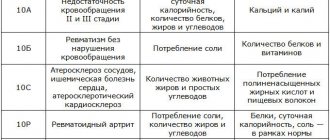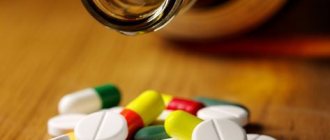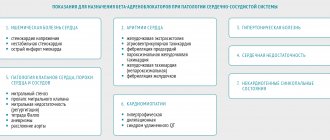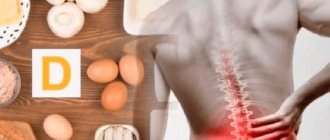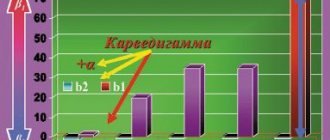Nowadays, the problem with the cardiovascular system is one of the main ones in the whole world. The number of heart diseases is increasing every year. And sadly, such diseases are becoming younger and younger.
Like 0
459
Despite this, there are many ways to combat such a serious illness. And first of all, you need to adhere to the right lifestyle.
Scientists have named a number of useful habits in order to maintain a healthy heart and prolong your life.
- 750 375
More details - 180
More details
- 234
More details
- 234
More details
Stop smoking
There can be no doubt here. It is necessary to give up what specifically can kill you. Even if it's in small quantities. Smoking is an insidious and dangerous habit.
First of all, smoking causes great harm to the heart and blood vessels. After one cigarette smoked, blood pressure rises, increasing the risk of blood clots and arterial blockage. At the same time, a smoker’s pulse is 15,000 heartbeats per day faster than that of non-smokers. Consequently, the load on the heart is about 20% higher than normal.
Vasoconstriction during smoking causes oxygen starvation - hypoxia. For those who smoke several cigarettes a day, the risk of stroke and heart attack doubles. And the nicotine contained in cigarettes accumulates and settles in the bronchi and lungs.
Medical examination
The Best Clinic uses a variety of modern methods for diagnosing heart diseases, such as echocardiography, cardiac probing, Holter monitoring, etc. These procedures make it possible to detect the disease at the earliest stages of development, which makes it possible to begin treatment on time, saving the patient’s health and even life.
In addition, we can take a blood test for cholesterol, measure blood pressure, and get a consultation with a cardiologist.
And contact your doctor immediately if:
- you felt sudden weakness;
- arms or legs have lost sensation for no apparent reason;
- there were difficulties with pronunciation or understanding of simple sentences;
- vision was severely impaired;
- An intense headache suddenly appeared.
These are signs that indicate that there is a clear disorder with your condition. It’s better to play it safe once again than to pay for neglecting your condition with immobility for many months, or even life.
But to prevent this from happening, an ordinary healthy person can already take several simple steps: rest more, walk, breathe clean air, do not give in to bad habits... And, of course, pay attention to any changes in your well-being.
And if you need to get advice or undergo a medical examination, contact us at Best Clinic, we work seven days a week.
Move more
Physical activity is essential for your heart. First of all, it strengthens the cardiorespiratory system, normalizes blood pressure, lowers cholesterol and blood sugar levels.
Move as much as possible if possible. The recommended amount of exercise per week is 130-150 minutes of moderate-intensity aerobic exercise and 60 minutes of strength exercise. Aerobic exercise includes swimming, brisk walking, cycling, Nordic walking, tennis, outdoor walking and even physical activity while cleaning the house or working in the garden.
During strength training, it is important to work the main muscle groups (legs, arms, back, shoulders). For this purpose, training with dumbbells, kettlebells, barbells, as well as exercises with your own weight (push-ups, squats, pull-ups, yoga) are recommended.
But it is not at all necessary to strictly follow these recommended limits. Any physical activity, even minimal, is very beneficial for health and reduces the risk of cardiovascular diseases.
How to keep your heart healthy
Table of contents
- Factors leading to “failures” in the functioning of the heart
- 5 simple rules for maintaining a healthy heart
- Movement is life. Rabbits confirmed
- Nutrition for the Heart
The heart is one of the most important human organs. This is a kind of pump that “pumps” blood into the vascular system. The condition of the organs and systems of the body depends on the proper functioning of the heart and the entire cardiovascular system. As a matter of fact, the life expectancy of a person depends on this. In conditions of stress, strain, poor environment and poor nutrition, the heart needs special care. Unfortunately, we most often do not pay due attention to our main organ, which needs to be protected from youth.
Factors leading to “failures” in the functioning of the heart
1. hereditary factor; 2. gender factor (men suffer from heart disease more often); 3. age factor (the older the person, the greater the risk of heart disease); 4. lipid (fat) metabolism disorders, increased levels of low-density cholesterol; 5. violation of carbohydrate metabolism, diabetes mellitus; 6. arterial hypertension; 7. psycho-emotional stress, stress; 8. bad habits (smoking); 9. unhealthy diet, obesity; 10. decreased mobility (hypodynamia).
We cannot influence the first 3 factors in any way, i.e. they are objective. It is in our power to fight the other 7 factors; they are subjective.
The abuse of certain products also leads to improper functioning of our “engine”. For example, spicy, fried, fatty, too salty foods. Heart disease is caused by excessive consumption of protein foods, sweets, as well as caffeine-containing drinks (tea, coffee), and alcohol. Unpleasant sensations, pain in the heart, rapid pulse at rest, shortness of breath, suffocation - at least one of these symptoms should lead us to an appointment with a cardiologist.
In conditions that negatively affect the health of the heart, it seems to “suffocate.” The heart muscle must receive the necessary nutrition and remove toxic substances. With increased load, the need for nutrition is higher. If blood flows poorly (or not at all) to the myocardium, then we can talk about coronary heart disease (CHD). In this state, it does not receive enough oxygen, and when blood flow to the myocardium stops, oxygen supply completely stops. At the same time, toxic substances formed during the work of the heart are not eliminated. This may occur due to spasm or blockage of the heart vessels with sclerotic deposits.
IHD can occur in a chronic form - this is angina pectoris . With this form, the lumen of the coronary vessels is narrowed, but they are not blocked at all. Angina pectoris manifests itself in attacks. The patient experiences a pressing, squeezing pain behind the sternum, which can radiate (give) to the left half of the body, neck, or arm. A patient with angina feels as if there is not enough air. The acute form of ischemia is myocardial infarction. It occurs if one or more vessels of the heart become clogged, part of the myocardium simply dies due to the cessation of the supply of nutrients and oxygen to it with the blood. During a heart attack, severe, acute pain appears in the heart, which is compared to the blow of a dagger. The pain will be distributed to the left half of the chest, neck, left shoulder and arm. Extraordinary heart contractions occur and blood pressure drops.
5 simple rules for maintaining a healthy heart
- No smoking.
- Watch your diet. It should be varied, and excessive consumption of fatty and sweet foods should be avoided.
- Move. You need to walk about 3 km per day.
- Measure your blood pressure regularly. Pressure changes are a serious reason to contact a cardiologist.
- Measure blood cholesterol levels (especially after 40 years).
Movement is life. Rabbits confirmed
An interesting experiment confirming the need for physical activity for the proper functioning of the heart was performed on rabbits. Researchers at the Institute of Clinical Cardiology placed rabbits in cages that limited movement (the size of the animal's torso). The animals remained in this state for 70 days. Microscopic examination of the heart muscle of rabbits after being in cramped cages showed a terrifying picture. A large number of contractile fibers of the heart simply atrophied. The conduction system of the heart was disrupted, the walls of the capillaries began to grow inward, narrowing their lumen. The poor rabbits who experienced forced physical inactivity gave us a very good reason to think about our lifestyle.
Nutrition for the Heart
For the heart to function properly, it is necessary to nourish your body with vitamins, potassium and magnesium, and in case of illness, help the heart muscle become saturated with oxygen.
Below we will consider a small list of foods that need to be consumed for the proper functioning of the cardiovascular system. Potassium is found in dried apricots, fresh potatoes (preferably boiled with peelings), grapes, raisins, bananas, pumpkin, and beans.
Magnesium is found These foods should be eaten as often as possible, but at least 3 times a week.
You can, as prescribed by your doctor, take medications containing minerals necessary for the heart (for example, asparkam, panangin, cardio-active, magne-B6, magnerot). If a cardiologist detects hypoxia of the heart muscle, he can prescribe drugs that help deliver oxygen to the myocardium. For example, dihydroquercetin, succinic acid, mildronate (cardionate), riboxin. To prevent cardiovascular diseases, it is necessary to take angioprotectors. Literally this term is translated as “protection for blood vessels.” Angioprotectors include preparations of motherwort, strawberry leaves, and hawthorn fruits. Hawthorn preparations dilate the blood vessels of the heart, help enrich the blood with oxygen, and with long-term use they steadily reduce blood pressure, relieve shortness of breath, and lower cholesterol levels. The above-mentioned dihydroquercetin is also classified as angioprotector. This substance is obtained from a coniferous tree - larch. It also has antioxidant, detoxification, hepatoprotective, radioprotective and anti-edematous effects. Dihydroquercetin is part of the capillary dietary supplement, which is in great demand among people with diseases of the cardiovascular system. To prevent heart disease, it is necessary to reduce cholesterol. Infusions of red clover and meadowsweet are well suited for this. Meadowsweet also has an immunomodulatory effect and also reduces prothrombin. Vitamin C has an antioxidant effect and is known to be a preventive agent for ischemia. In combination with the vascular-strengthening rutin, vitamin C is part of the proven drug Ascorutin. Infusions of buckwheat herbs, green tea, clove flowers, mint leaves, and lemon balm have antioxidant activity.
All these drugs must be taken on the recommendation of a doctor!
Currently, attitudes towards the disease and prevention are changing all over the world. The word “disease” fades into the background. More and more people are thinking about disease prevention and a healthy lifestyle. Of course, from our point of view, this should not turn into a cult of health and body. And yet it is necessary to take care of the bodily shell. It is easier to prevent a disease than to deal with its consequences.
Be healthy!
Author: Ekaterina Solovyova
Please note that the information presented on the site is for informational and educational purposes only and is not intended for self-diagnosis and self-medication. The selection and prescription of medications, treatment methods, as well as monitoring their use can only be carried out by the attending physician. Be sure to consult a specialist.
Control your blood pressure
As a result of increased pressure (hypertension), stress occurs on the walls of the arteries. Because of this, they lose elasticity and become narrower. This leads to the appearance of blood plaques and cracks in the vessels, which entails the possibility of a stroke.
Experts believe that the ideal blood pressure is 120/80. Older people, overweight people, people with diabetes and heavy smokers are at increased risk of hypertension (increased pressure in the system). If the pressure is above 140/90, then this indicates full-blown hypertension.
Blood pressure may change throughout the day. Its level can be affected by food, alcohol intake, smoking, as well as all kinds of stressful situations. To normalize blood pressure, experts recommend losing weight and eating right, reducing the amount of alcohol consumed and quitting smoking, normalizing sleep and trying to avoid stress. It is also necessary to reduce salt intake.
Symptoms of High Cholesterol
Sometimes cholesterol is deposited on the surface of the skin in the form of plaques - on the skin of the face, lower eyelids, limbs and torso. But the most dangerous is the accumulation of cholesterol inside our body, which is not visible without the help of laboratory testing. Often, high levels of low-density cholesterol in the body do not manifest themselves in any way. And in most cases, the disease does not manifest itself in time. This can lead to a heart attack, myocardial infarction, stroke at an early age, and also to the development of atherosclerosis.
Control your cholesterol levels
Cholesterol is one of the indicators that characterizes a person’s health status. People who do not have problems with high cholesterol should have it checked at least once every 2 years. And people who have high cholesterol levels need to monitor it at least once every six months. In this case, the main thing is to pay attention to indicators such as HDL and LDL.
HDL cholesterol is cardiovascular-healthy cholesterol. Its content level should be high. As for LDL cholesterol, it is very unhealthy. Its level should be low. There is also a type of fat in the blood called triglycerides. High triglyceride levels are associated with cardiovascular disease and diabetes.
By following a diet, you can normalize your cholesterol levels. Foods such as sea fish, legumes, citrus fruits, oat bran, carrots, avocados, green tea, garlic and flax seeds are excellent for reducing “bad” cholesterol. And all kinds of nuts increase the level of “good” cholesterol. And in order to reduce triglyceride levels, it is necessary to reduce the consumption of empty processed carbohydrates - sugar, white bread, candy, pasta, as well as packaged juices and all kinds of store-bought baked goods.
First of all, cholesterol is a fat-like substance that our body needs to:
| Creation of healthy cells: membranes of red blood cells, membranes of liver cells, brain (gray and white matter); | Ensuring the digestion process: cholesterol is necessary for the production of bile acids, which break down fat; | Hormone synthesis: testosterone, estrogen, progesterone and even cortisol; | Vitamin D synthesis; | Work of the immune, reproductive, nervous systems - and in general, for the normal functioning of the body |
Pay attention to your weight
Obesity is one of the main causes of cardiovascular diseases. The risk group includes those people who have excess visceral fat. It accumulates in the abdomen and around internal organs - liver, kidneys, stomach. These fat deposits are much more dangerous than subcutaneous fat, as they are more difficult to get rid of.
The amount of visceral fat is determined using body mass index. Calculating BMI is easy: you need to take your weight in kilograms and divide it by the square of your height in meters. For example, the BMI for a person 180 cm (1.8 m) tall and weighing 80 kg would be 24.69. (80 : (1.80 × 1.80) = 24.7). The healthiest range is from 20 to 25, above 25 is overweight, and above 30 is obese.
However, as experts say, it is impossible to rely entirely on BMI. In men, especially athletes with a lot of muscle mass, the figure may be more than 25, although the percentage of fat mass is low. Conversely, you can be thin but still have a high percentage of visceral fat.
Where does cholesterol come from?
Sources of cholesterol are partly the foods we consume (about 20% of the total amount of cholesterol in the body). But the main percentage of the substance is synthesized in the liver, which is responsible for creating 80% of endogenous cholesterol. Other sites where cholesterol is produced, but in very small quantities, are the adrenal cortex, testes, ovaries and intestines.
The liver synthesizes cholesterol for export to other cells and helps remove excess cholesterol from the body. This is achieved by converting cholesterol into bile salts, with which it is ultimately excreted. In addition, the liver synthesizes most of the lipoproteins necessary to transport cholesterol throughout the body. Since cholesterol is carried through the blood, but, having a fat-like structure, does not dissolve in the blood, it attaches to proteins. Proteins act as carriers for cholesterol. The combination of proteins and cholesterol is called lipoproteins.
Pay attention to nutrition
For heart health, it is recommended to constantly have plant foods (nuts, seeds, legumes, grains) in your diet. Fresh vegetables and fruits are also a must. Seafood plays an important role in the diet. This is especially true for fatty fish (salmon, sardines, mackerel). It is also necessary to consume fermented foods (sauerkraut, yogurt and kefir) and healthy fats (olive, flaxseed, sesame oil).
Try to avoid foods with sugar, processed carbohydrates, sausages and sausages. Moderate consumption of butter, cheeses, red meat, milk and eggs.
The Mediterranean diet is very good for your heart. The basis of this diet is olive oil, nuts, seafood, fruits, vegetables, legumes and poultry. According to scientists, those people who adhered to this diet had much fewer problems with the cardiovascular system. These people were able to avoid stroke, heart attack and prolong their lives.
Prevention
To prevent high cholesterol levels, you can:
- Be regularly examined in the laboratory of Dіla - 112 “Lipid complex”;
- Follow a diet low in salt and high in fruits, vegetables, and whole grains;
- Limit the amount of animal fats and use vegetable fats in moderation;
- Maintain a healthy weight;
- Quit smoking and reduce alcohol consumption;
- Do physical exercise for at least 30 minutes a day;
- Try to control your stress levels.
Low cholesterol
Reduced cholesterol levels are also a problem. Since cholesterol is an important component of cell membranes, a precursor of hormones, bile acids and other substances that are important in a living organism, reducing its amount below normal also has negative consequences.
- It turns out that people with low cholesterol are more likely to have symptoms of depression and anxiety;
- There are studies showing a possible link between low cholesterol levels and the risk of cancer;
- Cholesterol is necessary for the normal synthesis of sex hormones, the physiological course of pregnancy and the normal menstrual cycle. Low cholesterol may be associated with a risk of premature birth or having a low birth weight baby.
The external symptoms of hypocholesterolemia may manifest differently in each person, but laboratory diagnosis helps to find out their cause.
When can you suspect “low cholesterol” or hypocholesterolemia?
- With regular malnutrition, strict diets;
- In the presence of diseases with impaired liver function (including cirrhosis, hepatitis);
- For inflammatory bowel diseases or protein-losing enteropathies;
- For hyperthyroidism or hypoadrenocorticism (Addison's disease). Low amounts of glucocorticoids may reduce the absorption of cholesterol in the intestine;
- If you are exposed to chronic stress;
- With hyperthyroidism (increased thyroid function);
- With adrenal insufficiency;
- With malabsorption (insufficient absorption of nutrients from the intestines), for example, with celiac disease;
- For leukemia.
